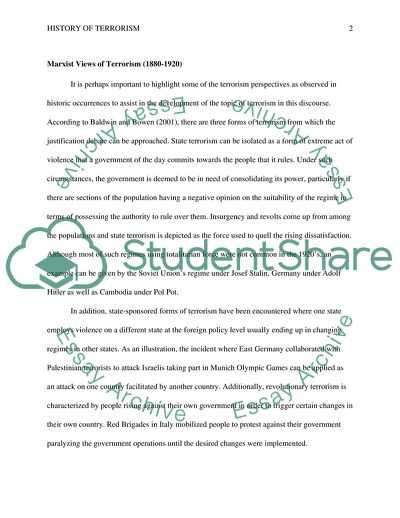Cite this document
(History of Terrorism Essay Example | Topics and Well Written Essays - 2500 words, n.d.)
History of Terrorism Essay Example | Topics and Well Written Essays - 2500 words. https://studentshare.org/history/1757743-history-of-terrorism
History of Terrorism Essay Example | Topics and Well Written Essays - 2500 words. https://studentshare.org/history/1757743-history-of-terrorism
(History of Terrorism Essay Example | Topics and Well Written Essays - 2500 Words)
History of Terrorism Essay Example | Topics and Well Written Essays - 2500 Words. https://studentshare.org/history/1757743-history-of-terrorism.
History of Terrorism Essay Example | Topics and Well Written Essays - 2500 Words. https://studentshare.org/history/1757743-history-of-terrorism.
“History of Terrorism Essay Example | Topics and Well Written Essays - 2500 Words”. https://studentshare.org/history/1757743-history-of-terrorism.


